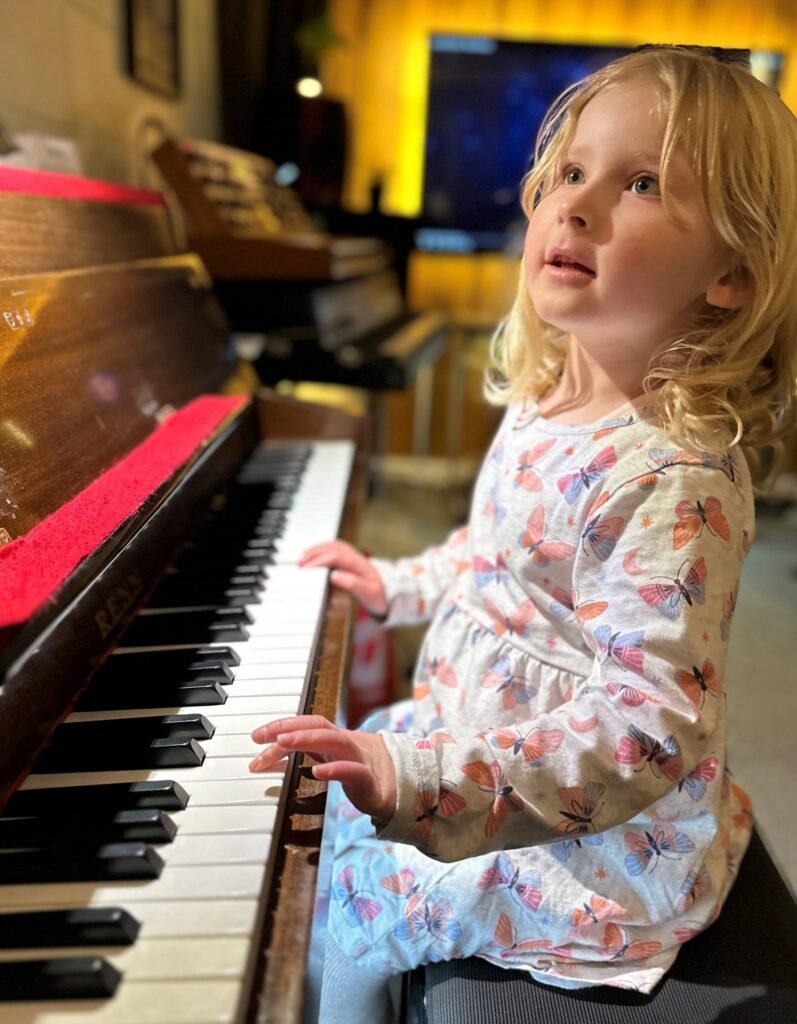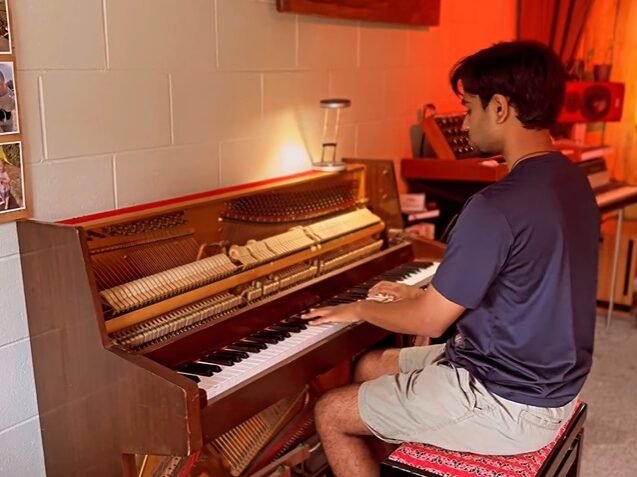Beginners should aim to take piano lessons once to twice per week to build a solid foundation in their musical journey. Regular practice and structured lessons are crucial for developing essential skills and confidence on the piano.
- How often should a beginner take piano lessons?
- What factors influence the ideal lesson frequency for beginners?
- Can adults learn piano as effectively as children?
- What if I can’t attend weekly piano lessons?
- How long should each piano lesson be?
- Should I take lessons throughout the year, or are breaks recommended?
- How does living in Auckland affect my piano lesson schedule?
- Do online piano lessons work for beginners?
Embarking on the journey of learning the piano is an exciting yet often challenging endeavour, especially for those just starting. One of the most common questions asked by new learners is “how often should a beginner take piano lessons?” Answering this question aptly involves understanding the goals, dedication, and available time of the learner. A well-structured lesson plan with regular intervals can significantly influence a beginner’s progress.
Understanding the Importance of Frequency
As a rule of thumb, beginners should consider engaging in piano lessons once or twice a week. This frequency allows students to assimilate new information, practice adequately, and build upon the previous session’s concepts without overwhelming them. Frequent lessons, while necessary, need a balance that accommodates personal practice time, crucial for internalising skills.
Timothy William, a seasoned piano teacher in Auckland, recognises the challenges faced by newcomers and advocates for a tailored approach. Each student is unique, and while some may thrive with more frequent lessons, others do well with a slower pace, ensuring they do not feel rushed.
Flexibility and Commitment in Learning
Commitment to consistent piano lessons can help establish a routine, which is vital for skill development. However, the flexibility to adapt the schedule based on progress and aptitude should not be overlooked. Regularly attending lessons at Timothy William’s studio in Auckland can also foster discipline and encourage a deeper connection with the instrument.
The benefits of frequent lessons extend beyond the sheer practice of playing. They enhance cognitive skills, improve hand-eye coordination, and offer a creative outlet for emotional expression. Developing these skills early builds the groundwork for proficient and passionate musicianship.

Why Consistency Matters in Piano Learning
When considering how often a beginner should take piano lessons, one of the key elements that surfaces is consistency. Establishing a regular lesson routine allows beginners to build foundational skills effectively and keep motivation high. Weekly lessons, typically favoured by many piano instructors, offer a balanced mix of learning and practice that aligns with musical pedagogy.
Building a Strong Foundation
Regular piano lessons help beginners reinforce crucial music theory concepts and technical skills, which are essential for developing a well-rounded pianist. By meeting with their teacher consistently, students can receive immediate feedback and correction, which prevents the formation of bad habits. This direct interaction is particularly beneficial in the early stages when beginners are learning the correct hand positioning and reading music. In Auckland, acclaimed teachers, like Timothy William, offer structured sessions that ensure this foundational knowledge is built gradually and comprehensively.
Maintaining Motivation
Consistency in lessons also plays a pivotal role in keeping students motivated. The routine of weekly classes provides a set time to showcase progress and receive encouragement from the teacher. For beginners, motivation is often linked to observable achievements such as learning a new song or mastering a simple scale. These milestones, when highlighted in regular intervals, contribute significantly to a student’s sense of accomplishment and eagerness to continue learning. Moreover, seeing consistent improvement fosters a positive learning experience that is crucial for long-term interest in piano.
Adapting to Individual Needs
While a standard of weekly lessons is beneficial, personal factors might necessitate adjustments. Each student is unique in their pace of learning, life schedule, and personal goals. Some may find bi-weekly lessons more suited to their needs, offering extra practice time in between sessions. It is important for teachers to collaborate with students to identify what works best for them, ensuring that their learning journey remains effective and engaging.

Practical Tips for Scheduling Piano Lessons
Deciding how often to schedule piano lessons for beginners is a critical step in ensuring successful musical development. After understanding the significance of consistency, we now delve into practical strategies that can be employed by both students and instructors to optimise lesson schedules.
Understanding Individual Needs
Every beginner pianist comes with unique strengths and challenges. Identifying the individual learning pace is essential for scheduling lessons aptly. Beginners often benefit from weekly lessons, allowing sufficient time to practice and assimilate new techniques. However, some may progress differently and might require adjustments, such as more frequent sessions during the initial learning stages to build confidence quickly. For those balancing school or work, shorter and more intense lessons could be more effective than prolonged sessions spread too thinly across a month.
Balancing Practice and Lessons
The synergy between practice and lessons is pivotal. While structured lessons are fundamental, consistent practice in between sessions solidifies learning. Beginners should aim to integrate short, daily practice routines based on the lesson objectives. This approach not only provides a routine that supports lesson content but also fosters a deeper engagement with the instrument, enhancing the joy of learning. Using a practice journal can be beneficial for tracking progress and identifying areas that may require additional focus during subsequent lessons.
Strategizing Time Management
Effective time management is crucial for sustaining a productive learning rhythm. Scheduling lessons at a time when the student is most alert and receptive can greatly enhance the learning experience. For younger students, choosing after-school slots when they are energetic, or for adults, weekday evenings might be ideal when work constraints are minimal. Additionally, leveraging technology with virtual lessons can also offer flexibility for those constrained by geographical or time limitations, expanding the possibilities for consistent learning without significant disruptions.
By adopting these practical strategies, students are equipped to make the most of their learning journey, effectively balancing lessons, practice, and personal commitments. These insights are designed to empower both beginners and their instructors, providing a framework that respects individual paces and preferences.
Next, we will explore why choosing Timothy William in Auckland for your piano education can elevate your learning experience.
Why Choose Timothy William for Piano Lessons
Finding the perfect piano teacher is crucial for any beginner seeking to embark on their musical journey. Timothy William offers an exceptional option for those looking to explore the world of music through piano lessons in Auckland. His approach is comprehensive, offering both a nurturing environment and expert guidance tailored to individual needs.
Experienced Local Experts
Timothy William is not just any instructor; he is an experienced musician with a deep understanding of the musical landscape in Auckland, New Zealand. His profound knowledge allows him to offer insights well beyond basic instruction. Timothy’s ability to relate to local culture and its influence on musical styles greatly enriches his teaching, making him an ideal choice for students in the region. He is committed to helping students understand how often a beginner should take piano lessons by tailoring his teaching strategies to each student’s learning pace and personal goals.
What Sets Us Apart
What truly distinguishes Timothy William is his dedication to nurturing a student’s passion for music while still maintaining a structured learning environment. His lessons incorporate a blend of technical skill development and creative expression, ensuring that students do not just learn to play notes but to feel and express the music. As a leading piano teacher in Auckland, he maintains a community-oriented approach, offering support and fostering connections amongst his students. Feedback from past learners consistently praises his professionalism, patience, and the supportive atmosphere he creates.
For those seeking a comprehensive and compassionate teaching experience, Timothy William stands out as a premier choice. His commitment to enhancing clients’ musical journeys with unmatched professionalism ensures that each student receives not only instruction but inspiration.
In the next section, we will address frequently asked questions regarding how often a beginner should take piano lessons, providing additional clarity and confidence for your learning decisions.
Frequently Asked Questions
How often should a beginner take piano lessons?
Beginner pianists typically benefit from one lesson per week, allowing for time to practice between sessions and absorb new information effectively. This frequency balances learning and practice, aiding steady progress.
What factors influence the ideal lesson frequency for beginners?
Several factors can influence how often lessons should be taken, such as the student’s age, learning speed, goals, and personal schedule. These should be considered to tailor a suitable lesson plan.
Can adults learn piano as effectively as children?
Absolutely, adults can learn piano just as effectively as children. While the learning approach may differ, determination and regular practice are key to progress at any age.
What if I can’t attend weekly piano lessons?
If weekly lessons aren’t feasible, consider bi-weekly sessions with increased practice time or online lessons to maintain consistency and progress in your learning.
How long should each piano lesson be?
For beginners, a 30-minute lesson is typically ideal, as it keeps engagement high and allows time to cover essential topics without overwhelming the student.
Should I take lessons throughout the year, or are breaks recommended?
Consistent lessons throughout the year are beneficial. However, short breaks can provide rest and rejuvenation, provided that practice continues during these periods to retain skills.
How does living in Auckland affect my piano lesson schedule?
Living in Auckland offers many opportunities for diverse teaching styles and flexible scheduling, catering to beginners looking for a tailored and convenient learning experience.
Do online piano lessons work for beginners?
Yes, online piano lessons can be effective for beginners by offering flexibility and a wide selection of teachers to meet individual needs and preferences.




